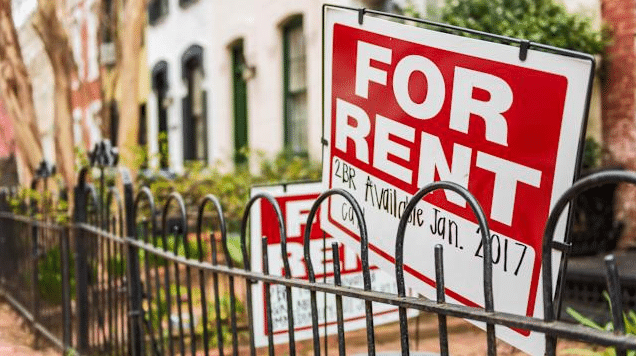Renting Made Simple: How to Find Affordable & Comfortable Homes Across the U.S.

Anúncios
Moving to a new place—whether across the country or just across town—is a major life event. It can mark the beginning of a new job, academic journey, or personal chapter. But no matter the reason, securing the right rental home can make all the difference in how smoothly that transition goes.

Renting in U.S. (Photo: Reproduction/Internet)
Fortunately, affordable and comfortable rental options still exist in cities and towns throughout the United States, starting as low as $500 per month. The key? Knowing where to look, what to expect, and how to act fast when the right opportunity arises.
Anúncios
This comprehensive guide is designed to help you confidently approach the rental process. You’ll learn about the rental landscape in different regions, how to search smarter, tips for submitting strong applications, and how to protect yourself as a tenant.
📍 Understanding the U.S. Rental Market: What You Should Know
The American rental market is highly localized. Rent prices can vary widely depending on region, city, and even neighborhood. Before diving into listings, take a step back and understand what influences cost, competition, and availability.
Anúncios
🔀 Regional Variation is Real
Renting a studio apartment in Manhattan or San Francisco may cost upwards of $2,000 per month, while a similar unit in cities like Omaha, Tampa, or Indianapolis might cost $700 to $1,000. Smaller towns and suburban areas often offer better deals for larger spaces and quieter living.
💵 What Impacts Rental Prices?
- Location: Close proximity to schools, downtown areas, or public transit typically increases demand.
- Size & Condition: Renovated units or those with modern features (like in-unit laundry or updated kitchens) command higher prices.
- Seasonality: Spring and summer months see a surge in demand, which can temporarily push rents higher.
- Job Market: Cities with booming industries (like tech or healthcare) often see faster rent increases.
By researching the dynamics of your target location, you’ll gain an edge when timing your search or negotiating terms.
🔍 How to Search for the Right Rental—Efficiently
A successful rental search involves more than scrolling through online listings. It takes strategy, persistence, and sometimes local connections. Here’s how to boost your chances of finding a great home at a reasonable price.
🛠️ Use the Right Tools
- Zillow: Great for browsing by map and filtering by price, amenities, and lease terms.
- Apartments.com: Comprehensive listings, often with 3D tours and availability calendars.
- Realtor.com: Reliable information, especially for suburban or small-town rentals.
🧭 Tap into Local Expertise
In many markets, property managers and local real estate agents have early access to listings. They can also help you avoid scams, understand lease terms, and even assist with paperwork. While agents may charge a fee in some cities, the time saved can be worth it—especially in tight markets.
🌐 Don’t Ignore Community Channels
Neighborhood Facebook groups, Reddit threads, and online bulletin boards like Craigslist often feature rentals that haven’t hit major platforms yet. In cities where rental competition is fierce, these “under-the-radar” opportunities can be gold mines.
🗂️ How to Build a Strong Rental Application
Once you find a rental that fits your budget and lifestyle, you’ll likely need to apply quickly. Landlords want reliable tenants, and your application is your first impression. Here’s how to stand out from the rest:
📋 Documents You’ll Likely Need
- Government-issued photo ID (driver’s license, passport, or state ID)
- Proof of income (pay stubs, job offer, or tax returns for self-employed renters)
- Credit report (either self-submitted or pulled by the landlord)
- Rental history and references (landlords, employers, or even roommates)
✨ Tips to Strengthen Your Application
- Include a short letter explaining your background, income, and move-in timeline.
- Be honest about any credit or financial issues, and explain how you plan to stay current on rent.
- Offer a co-signer or guarantor if your credit or income is limited.
- Respond quickly to communications and provide all requested documents at once.
📃 Lease Agreements: What to Know Before You Sign
Before committing to any rental, take the time to read the lease thoroughly. A lease is a binding legal document, and misunderstanding it could lead to conflicts or extra fees.
🔎 Key Sections to Review
- Monthly rent and when it’s due
- Length of lease (e.g., 12 months, month-to-month)
- Security deposit terms and refund policy
- Utility responsibilities (who pays for water, gas, trash?)
- Rules about pets, guests, parking, and subletting
⚖️ Know Your Rights as a Tenant
U.S. tenants are protected by state and federal laws. While regulations vary, here are some common rights:
- Right to a safe, habitable living space
- Right to receive notice before entry or eviction
- Right to receive your deposit back, minus damages, within a reasonable time
- Protection from discrimination under the Fair Housing Act
🤝 Can You Negotiate Your Lease?
Yes—especially in slower rental markets or for properties that have been vacant for a while. Consider asking for:
- A lower rent if you’re willing to sign a longer lease
- Waived application or parking fees
- Flexible move-in dates
- Free or discounted utilities
Just remember to be polite, professional, and realistic in your requests. Landlords are more likely to accommodate tenants who come across as responsible and respectful.
✅ Habits of a Successful Renter
Getting the keys is just the beginning. Here’s how to maintain a positive experience throughout your lease:
- Communicate often: Report maintenance issues early to prevent bigger problems.
- Pay rent on time: This builds trust and protects your rental history.
- Respect the property: Follow rules, keep common areas clean, and treat neighbors courteously.
- Document everything: Save lease agreements, receipts, and emails.
🏁 Final Thoughts
Renting doesn’t have to be a stressful or unpredictable experience. With the right mindset, preparation, and resources, you can confidently secure a rental that meets your financial and personal needs.
Whether you’re moving for the first time or relocating after years in one spot, the steps are the same: research, plan, apply, and settle in. The effort you put in today leads to peace of mind tomorrow.
Take the first step toward your next home—start searching smart today.
❓ Frequently Asked Questions (FAQs)
What documents do I need to rent a home?
You’ll usually need a valid ID, proof of income, a credit report, and contact info for references.
How can I improve my chances of getting approved?
Apply with complete and honest documents, provide strong references, and consider using a co-signer if needed.
Are short-term rentals available?
Yes! Many furnished or flexible-lease apartments cater to short-term needs. You can also explore corporate housing.
What if I’m late on rent?
Notify your landlord immediately. Many will work with you on payment plans if you’re upfront and proactive.
Can I negotiate rent or lease terms?
Often, yes. Ask about discounts, flexible terms, or incentives—especially if the unit has been vacant for a while.





